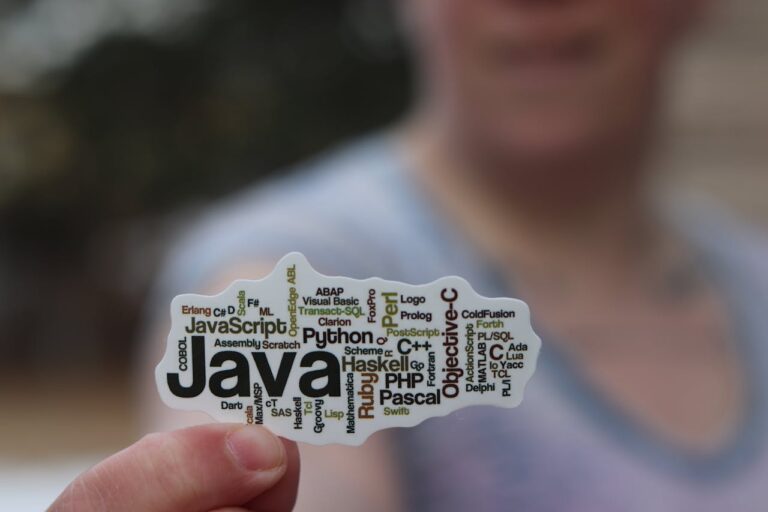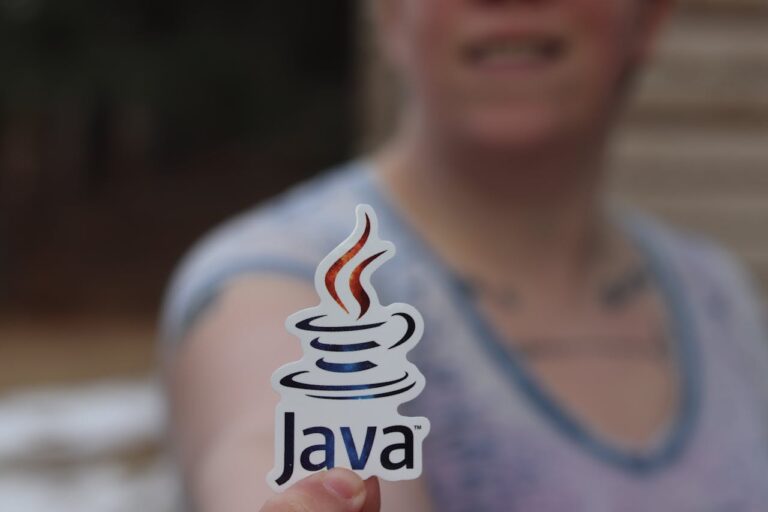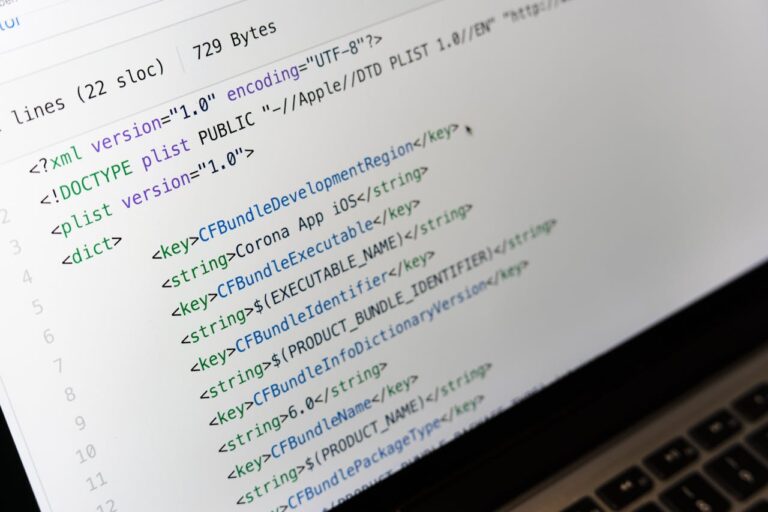Common Beginner Mistakes in Java and How to Avoid Them
Writing Java code as a beginner can be both exciting and frustrating. The excitement comes from seeing your programs run and do what you intended. The frustration comes from the bugs, compile-time errors, and logical mistakes that sneak in when you least expect them. Over the years, I’ve seen patterns in how these mistakes happen and how easily they can be prevented.
In this article, I’ll walk through common beginner mistakes in Java and how to avoid them. I’ll share what I’ve personally run into, what I’ve seen other new developers struggle with, and the practical ways I’ve learned to prevent these errors from slowing down progress.
Forgetting to Initialize Variables
One of the most frequent mistakes I made early on was trying to use a variable before giving it a value. In Java, local variables must be explicitly initialized before use, and failing to do this leads to compilation errors.
Example of a mistake:
java int count;
System.out.println(count); // compilation error
To fix this, I make sure to always initialize variables with a default value when declaring them. Even if I plan to change that value later, having a starting point prevents errors.
Correct approach:
java int count = 0;
System.out.println(count);
I also avoid declaring variables long before I use them. Declaring and initializing them close to their first usage helps prevent forgetting about them entirely.
Using the Wrong Data Type
Choosing the wrong data type can create subtle bugs. For example, storing decimal values in an int will result in truncation without warning.
Example:
java int price = 9.99; // error or data loss
In cases like this, using double is the correct choice:
java double price = 9.99;
I make it a habit to think carefully about the kind of data I’m dealing with before choosing a type. If precision is important, I even consider using BigDecimal instead of floating-point types.
Misplacing Semicolons
A stray semicolon can change how code behaves, especially in control structures.
Example:
java if (isValid);
{
System.out.println("This will run regardless of isValid");
}
The semicolon after the if statement makes the block that follows execute unconditionally. My approach is to slow down when writing control structures and check that I haven’t accidentally placed semicolons after if, for, or while statements.
Confusing the Assignment and Comparison Operators
Using = instead of == in conditionals is a classic beginner error. The single equals sign assigns a value, while the double equals sign compares values.
Mistake:
java if (isReady = true) {
// always runs
}
Correct usage:
java if (isReady == true) {
// runs only if isReady is true
}
Better yet, I simplify boolean checks:
java if (isReady) {
// cleaner and avoids confusion
}
Not Closing Resources
In Java, resources like file streams or database connections need to be closed after use. Beginners often forget this, leading to resource leaks.
Problematic code:
java FileReader reader = new FileReader("file.txt");
// read file
Improved code with try-with-resources:
java try (FileReader reader = new FileReader("file.txt")) {
// read file
} catch (IOException e) {
e.printStackTrace();
}
Using try-with-resources ensures that resources are closed automatically, even if an exception occurs.
Off-by-One Errors in Loops
Off-by-one errors happen when loops run one time too many or too few. They’re common when working with arrays.
Example:
java for (int i = 0; i <= array.length; i++) { // will throw exception
System.out.println(array[i]);
}
The correct version uses < instead of <=:
java for (int i = 0; i < array.length; i++) {
System.out.println(array[i]);
}
To avoid this, I double-check loop boundaries and sometimes use enhanced for loops to iterate through collections without worrying about indexes.
Ignoring Null Checks
Null pointer exceptions are a common frustration for beginners. Trying to access a method or property of a null object will crash the program.
Mistake:
java System.out.println(user.name.length());
If user is null, this will throw an exception. I make it a rule to check for null values before accessing them.
Example:
java if (user != null && user.name != null) {
System.out.println(user.name.length());
}
With modern Java versions, I also consider using Optional to handle potentially null values more safely.
Hardcoding Values
Hardcoding values directly into the code makes it difficult to maintain and update later.
Bad approach:
java double taxRate = 0.07;
Better approach:
java final double TAX_RATE = 0.07;
Or store configuration values in external files or constants, so changes can be made without editing the code directly.
Overusing Static Methods
Static methods are convenient but can lead to rigid code if overused. Beginners often make everything static to avoid creating objects, but this eliminates the benefits of object-oriented programming.
Instead, I limit static methods to utility functions and keep instance methods for behavior tied to specific objects.
Poor Exception Handling
Catching exceptions without taking proper action is a mistake that hides problems instead of solving them.
Bad example:
java try {
processFile();
} catch (Exception e) {
// do nothing
}
This makes debugging nearly impossible. Instead, I log the exception or rethrow it so it can be handled properly.
Example:
java try {
processFile();
} catch (IOException e) {
e.printStackTrace();
}
Mixing Up Pre-Increment and Post-Increment
Using ++i and i++ interchangeably without understanding the difference can cause subtle bugs.
Example:
java int x = 5;
int y = x++; // y = 5, x = 6
Versus:
java int x = 5;
int y = ++x; // y = 6, x = 6
I make sure I know which one is needed in a specific context before using it.
Failing to Use Proper Naming Conventions
Beginners sometimes use vague or inconsistent variable and method names. This makes code harder to read and maintain.
Instead of:
java int a;
String b;
I choose descriptive names:
java int customerCount;
String customerName;
Following Java’s naming conventions helps keep the code consistent and easier for others to read.
Neglecting Code Formatting
Messy code formatting makes even correct code harder to debug. Beginners often ignore indentation, spacing, and brace placement.
I use an IDE’s auto-format feature regularly to keep the code neat. This also reduces the chance of introducing structural errors.
Ignoring Compiler Warnings
Compiler warnings exist for a reason. Beginners sometimes dismiss them because the program still runs, but warnings can signal potential problems.
I make a point of addressing warnings as soon as they appear, even if the code works, because it saves me from trouble later.
Overcomplicating Solutions
When I was new to Java, I sometimes wrote overly complex code for simple tasks. Complexity makes debugging and maintenance harder.
I try to follow the principle of keep it simple, breaking down problems into small, manageable steps.
Not Testing Code Frequently
Waiting until an entire feature is complete before testing can make finding bugs harder. Beginners often fall into this trap.
I test code in small chunks, running it often to catch errors early. This makes debugging much easier.
Conclusion
Working through common beginner mistakes in Java and how to avoid them is part of every new developer’s journey. Mistakes like forgetting to initialize variables, choosing the wrong data types, ignoring null checks, and mishandling loops are common, but they’re also preventable with mindful coding habits.
By taking the time to understand the cause of each mistake and adopting strategies to avoid them, I’ve made my code more reliable, readable, and maintainable. The goal isn’t to eliminate every mistake from the start, but to recognize patterns, learn from them, and improve with each project. Over time, these habits make Java development far smoother and much more enjoyable.







